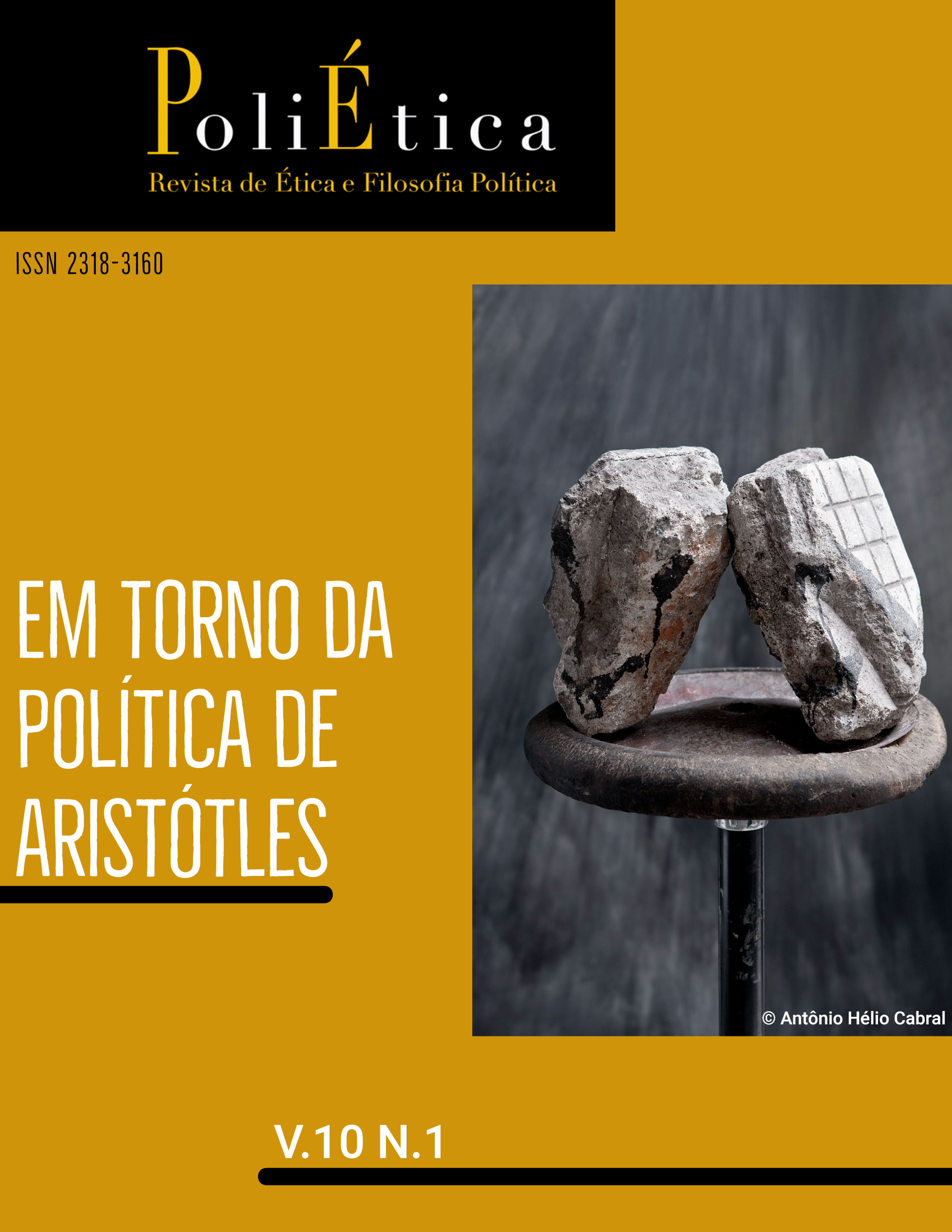Considerações acerca da figura do ágroikos em Aristóteles
DOI :
https://doi.org/10.23925/politica.v10i1.57683Résumé
Aristóteles utiliza o adjetivo ágroikos, agreste, para caracterizar dois vícios anônimos, ambos por carência: um referente à virtude da eutrapelía, e outro referente à virtude da temperança. Tal tematização dá a entender que parece se tratar de uma mesma figura, um mesmo caráter, que é avesso tanto aos prazeres necessários do corpo em geral, quanto ao riso, em particular. Sendo assim, surge uma questão que merece exame: por que essa frugalidade dos ágroikoi, elogiada por Aristóteles na Política, caracterizaria vícios? O presente artigo se propõe a responder este problema, defendendo que a solução para tal paradoxo depende de que se compreenda a dimensão profundamente política das virtudes no pensamento aristotélico.


